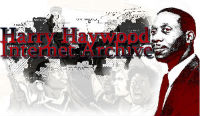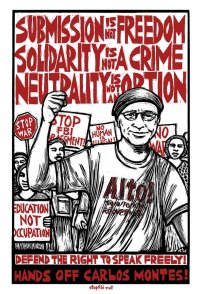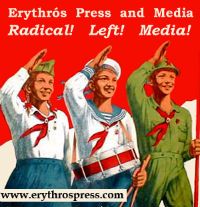The following two statements by the Freedom Road Socialist Organization sum up the protest in St. Paul, Minnesota of the Republican National Convention in 2008.

Anti-war protests at the RNC send message to the world
The tens of thousands of RNC protesters who hit the streets of Saint Paul Sept. 1 – 4 did something that was truly great. The demonstrations sent a powerful message that was heard around the world: The people of the United States reject the war on Iraq and the Republican agenda. We insist on peace, justice and equality. This message was heard by the rich and powerful, who responded with repression. And it was heard by hundreds of millions of people. Reports of the protests were carried by thousands of media outlets ranging from network TV in the U.S. to Al Jazeera to the New China News Agency. The Sept. 1 rally against the war was carried live on C-SPAN.
The demonstrations that took place on the first and last days of the RNC were of particular importance. The size, scope, militancy and the political clarity – crystallized in the slogan “U.S. out of Iraq now” – helped to create the political context for the entire week of actions against the RNC.
Read the rest here →
Lessons From the RNC: Mass Mobilization and Militant Actions Advance the Struggle
The Republican National Convention brought many of the biggest war-makers to Minnesota. The people’s movements from across the U.S. responded by organizing four days of demonstrations against the RNC. Freedom Road Socialist Organization prioritized organizing against the RNC and helped build multiple days of protest including the mass anti-war march of 30-35,000 people on September 1st and the “No Peace for the Warmakers” militant march turned civil disobedience on September 4th.
We saw the RNC as a chance to unite the anti war movement under the slogan “U.S. out of Iraq Now” and to build a broad united front against the Republican agenda. By any standard the powerful protests that rocked St. Paul were a blow against the rulers of this county.
For progressive and revolutionary organizations the RNC served as a sort of test. Many, from a variety of political trends – ranging from Marxist-Leninists to anarchists – passed this test with banners raised and flying colors. They stepped up to the plate, organizing a historic response to the Republican agenda of war, racism, and reaction.
Read the rest here →
See also the numerous articles on Fight Back! News
Like this:
Like Loading...
 APRIL 21 — There are moments when Kathmandu does not feel like a city on the edge of revolution.
APRIL 21 — There are moments when Kathmandu does not feel like a city on the edge of revolution.





















